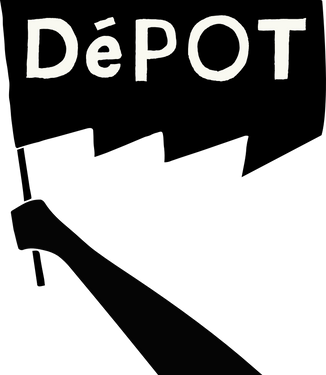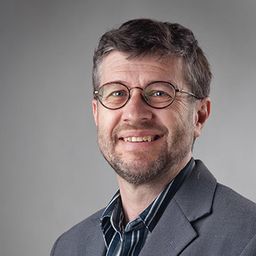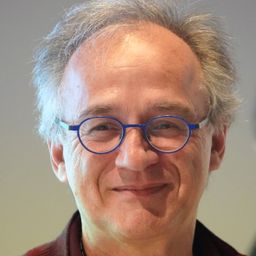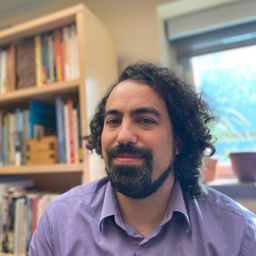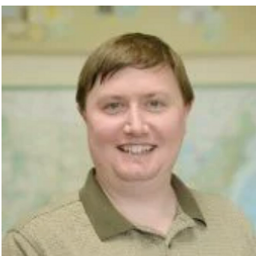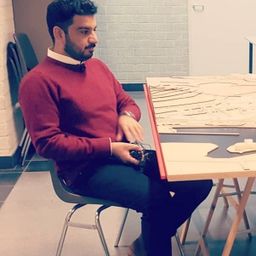
Naveed Iqal
With seven years of professional experience, Naveed specializes in the field of architecture and interior architecture (adaptive reuse). As an architect, he has mainly worked for medium to large-sized organizations in the architecture and construction sector. Throughout his career he has maintained a strong record in designing, executing, and reusing buildings of different scales, types, and functions, but it was the adaptive reuse discipline that attracted Naveed the most. Looking at the buildings pile of modern, old and ancient buildings adaptive reuse in the field of architecture is inevitable. This encouraged Naveed to pursue further studies, he applied for a scholarship through the Higher Education Commission HEC Pakistan and was selected in a systematic selection criterion for Master leading to Ph.D. program.
Naveed has a bachelor’s degree in architecture from the University of Engineering and Technology Peshawar Pakistan. A Master in “interior architecture adaptive re-use” with distinction from Hasselt university Belgium. He continued his research work as a Ph.D. scholar in the research group “Trace” at UHasselt Belgium on the topic of “Industrial heritage and its adaptive reuse potential in Pakistan” defining through international precedents the value of industrial heritage in urban regeneration.
The recent tide of industrial heritage and its reuse is quite unique for south Asian countries although it seems like a well-established strategy elsewhere in cities regeneration. Identification of industrial heritage and its reuse potential will be a new addition to the heritage arena of Pakistan as currently it is only focused on cultural and religious heritage.
Publications
"Adaptive reuse; Potentials and Compromises Between Demolition & Conservation with some Reflections from Pakistan". EAAE Conservation/Demolition workshop VII CTU Prague Czech Republic.
“Industrial sites adaptive reuse & regeneration potential in the metropolitan cities of Pakistan”. EAAE-ARCC international conference and VIBRArch Valencia Spain
“Re-reading the heritage legislations of Pakistan”. Heritage 2020 conference Portugal
“The Industrial Revolution and industrial heritage in the city of Karachi: A historical overview of the industrial revolution, related heritage, and its current state in the city of Karachi”. ICACHM 2021:23rd International Conference on Architectural Conservation and Heritage Management to be held in New York, USA
Documents
Sessions auxquelles Naveed Iqal participe
Mardi 30 Août, 2022
Sessions auxquelles Naveed Iqal assiste
Dimanche 28 Août, 2022
Vous êtes invités au lancement du livre "Deindustrializing Montreal : Entangled Histories of Race, Residence and Class" le dimanche 28 août (13h-15h) à la brasserie Les Sans Taverne du Batiment 7 (1900 rue Le Ber) à Pointe-Saint-Charles. Deindustrializing Montre...
Joignez-vous aux organisateurs du congrès et aux membres du board de TICCIH pour un cocktail de bienvenue et quelques mots festifs de présentation, dans l’ancienne forge de l’École technique de Montréal, fondée en 1909, aujourd’hui intégrée au campus de l’Université du Québec à Montréal.
Lundi 29 Août, 2022
This session is about the “hard facts” of conservation. It aims to draw together technical knowledge from related fields. Industrial conservation specialists rely on specialised knowledge and may sometimes not be aware that there is expertise and proven good or best practice in related fields. The transferring of knowledge from related engineering, construction preservation and architectural conservation specialists can serve the purpose of promoting and securing future preservation of ...
This session presents case studies and policy reviews that contribute to ongoing debate and international dialogue on the role of planning systems and conservation practices in addressing the challenges of citizen engagement—conserving local interests, place attachments alongside physical remnants of industrial heritage. Over the past half century, we have witnessed the development and changing focuses of urban planning and conservation discourses addressing industrial heritage. Relevant p...
Industrialization processes have been global from their very beginning. However, their interpretation still tends to be limited to specific locations or regions, and to specific time periods. Regularly, for example, it is stated that the industrial revolution started in Europe, from where it spread to the world, supposedly bringing technological and social progress to „less developed“ countries. Earlier periods of technology and knowledge transfer processes, that were already in place in t...
This roundtable will examine innovative and creative pedagogical approaches and partnerships that have created opportunities for experiential learning and community engagement, while enabling successful delivery of programs and courses in industrial heritage. In recent years and with the ongoing situation with the COVID-19 pandemic, undoubtedly online and distance teaching and learning are a top priority. The discussions will offer an analytical dialogue on digital learning strategies and ...
This session presents case studies and policy reviews that contribute to ongoing debate and international dialogue on the role of planning systems and conservation practices in addressing the challenges of citizen engagement—conserving local interests, place attachments alongside physical remnants of industrial heritage. Over the past half century, we have witnessed the development and changing focuses of urban planning and conservation discourses addressing industrial heritage. Relevant p...
This session is about the “hard facts” of conservation. It aims to draw together technical knowledge from related fields. Industrial conservation specialists rely on specialised knowledge and may sometimes not be aware that there is expertise and proven good or best practice in related fields. The transferring of knowledge from related engineering, construction preservation and architectural conservation specialists can serve the purpose of promoting and securing future preservation of ...
Industrialization processes have been global from their very beginning. However, their interpretation still tends to be limited to specific locations or regions, and to specific time periods. Regularly, for example, it is stated that the industrial revolution started in Europe, from where it spread to the world, supposedly bringing technological and social progress to „less developed“ countries. Earlier periods of technology and knowledge transfer processes, that were already in place in t...
Si la vallée du canal de Lachine a été le berceau de l’industrialisation canadienne, la géographie industrielle métropolitaine ne s’y est pas confinée, peu s’en faut, Outre les grandes concentrations d’entreprises des quartiers centraux, elle est constituée des réseaux infrastructuraux, d’une douzaine de centrales hydroélectriques et des ensembles manufacturiers disséminés dans une quinzaine de petites villes aujourd’hui intégrées dans l’aire métropolitaine. La conférence proposera un surv...
Mardi 30 Août, 2022
According to Rodney Harrison, “in the spirit of greater cross-disciplinary engagement, there is […] a pressing need to pay more attention to non-anglophone (and, indeed, non-Western) heritage literatures, histories and traditions” (2013: xiii), when we deal with critical approaches to heritage. This need is even greater when the scientific research focuses on countries such as Romania, Czechia, Bulgaria or Poland where Industrial Heritage, for example, is ignored and where the mechanism an...
Industrialization processes have been global from their very beginning. However, their interpretation still tends to be limited to specific locations or regions, and to specific time periods. Regularly, for example, it is stated that the industrial revolution started in Europe, from where it spread to the world, supposedly bringing technological and social progress to „less developed“ countries. Earlier periods of technology and knowledge transfer processes, that were already in place in t...
Drawing on case studies from diverse social, cultural, and political contexts the papers in this session discuss the different responses to maintaining and assessing not only the physical sustainability of industrial heritage but also the sustainability of its social values and meaning.
This session focuses on company towns from the perspective of urban planning. “Company towns” are here defined as single-enterprise planned communities, usually centered around a single industry, where a company commissions an urban plan, builds housing for its workers, and sets up recreational, commercial, institutional or community facilities. While these are now endangered by a second wave of deindustrialization, we observe that, aside studies or monographs of individual towns that popu...
Community lies at the heart of the processes of industrialization and de-industrialization. From labor to landscapes and from social fabric to ecological communities, scholars regularly examined the industrial community as core to industrial heritage. However, while social scientists have long studied industrial communities, only recently has there been a general consensus of respecting and working with communities themselves. Even so, working “with” a community on industrial heritage has ...
After 25 years of the launching of the first Latin American Industrial Heritage's organizations (México, Cuba, Argentina, Chile, Venezuela, Perú, Colombia, Brasil, Uruguay, Guatemala, Ecuador) we propose a general balance of the state of the art in the region and the future of the conservation and retooling of the industrial heritage in the covid19 aftermath. This regular session highlights four axes of discussion and comparative studies: 1) The legal framework of the policies of conservat...
Cette proposition de session focalise sur le patrimoine industriel colonial. A partir de trois cas, au Sénégal, au Tchad et à Taïwan, il s’agit de s’interroger sur les controverses et la possibilité d’utilisation du passé colonial. Le premier cas est le Sénégal, un pays d’Afrique de l’Ouest, dont l’industrialisation a été menée par la France afin de profiter des riches matières premières locales ; le deuxième est le Tchad, en Afrique centrale, et in...
Les efforts visant à préserver le patrimoine industriel s'inscrivent dans un contexte socio-économique et politique précis. Mais qu'est-ce qui est préservé et pour qui ? Et, par ailleurs, quelle est la relation entre les sites du patrimoine industriel et les communautés ouvrières soumises à la désindustrialisation qui les jouxtent souvent ? Steven High examinera les façons dont la préservation du canal de Lachine à Montréal, le principal site du patrimoine i...
Mercredi 31 Août, 2022
Visite de l’exposition permanente : À cœur de jour, grandeurs et misères d’un quartier populaire, qui retrace l’histoire d’un des plus anciens quartiers industriel et ouvrier de Montréal. Découverte de l’ancien bain Généreux, bâtiment rappelant une époque ou la majorité des logements ouvriers n’avaient ni bain ni douche. Présentation de quelques éléments du patrimoine du quartier sur le trajet entre l’...
Le canal de Soulanges est une infrastructure, localisée sur la rive nord du Saint-Laurent, qui a été ouverte au trafic maritime en 1900, succédant alors au « vieux canal » de Beauharnois (établi depuis 1843 sur la rive nord du Saint-Laurent). Le canal de Soulanges a été abandonné en 1959, alors que s’ouvrait l’actuelle Voie maritime du Saint-Laurent qui relie les Grands Lacs à l’Atlantique. La conception du canal de Soulanges est due à l’ingénieur Thomas Monro (1831-1...
Ce tour propose une excursion sur un pont privatisé du bateau-mouche de Montréal; une visite commentée ludique permet de découvrir quelques hauts-lieux du paysage industriel de la ville depuis le fleuve Saint-Laurent. La visite est tarifée pour couvrir les frais supplémentaires; le tarif inclut l'accès au bateau-mouche, l'excursion et une boisson.Le départ se fera à pied depuis le lieu d...
Jeudi 1 Septembre, 2022
De sa construction à sa restauration, plongez dans l’histoire et le présent de ce lieu incontournable du patrimoine industriel canadien. Voie maritime centrale au pays, port intérieur majeur, le Lowell canadien (recours à l’énergie hydraulique), berceau de l’industrialisation, Smokey Valley (recours à la vapeur), haut lieu de l’industrie manufacturière, le canal de Lachine est tout cela et plus encore. Car, il est également un lieu historique national où, depuis la réouverture du canal à l...
The use of industrial heritage is a profoundly important factor in the process of creating a sustainable economic, social, and political future for many communities occupying industrial heritage landscapes. More than ever we recognize the need for such communities to be capable of shaping and expressing their heritage in different forms in the context of current events and issues, and in doing so to inform both contemporary decision-making as well as the way their industrial heritage is re...
This lecture will argue that the landscapes of industrial heritage that can be found in different parts of the world are directly related to the place-specific trajectories of deindustrialization. In other words: the different ways in which deindustrialization impacts on local communities has a direct bearing on the emergence of forms of industrial heritage. I will differentialte between deindustrialization paths and related industrial heritage regimes in a) Anglo-...
Le quartier Centre-Sud est un ancien quartier industriel et ouvrier ; son patrimoine est riche et unique. La visite permettra de découvrir, entre autres, l’usine Macdonald Tobacco et la confiserie Raymond, les anciens logements ouvriers typiques du quartier, et les réutilisations d’anciens bâtiments à des fins culturelles et communautaires. L’activité débutera au métro Frontenac et se terminera par une visite à l’Écomusée du fie...
Vendredi 2 Septembre, 2022
Les participants se retrouveront à l'entrée (il n'y en a qu'une) du métro Lionel Groulx et de là, ils longeront le canal jusqu'aux écluses de St-Gabriel. Cette zone était autrefois la plus industrialisée du Canada. C'est aujourd'hui une zone d'affluence entre le quartier difficile, mais en voie d'embourgeoisement, de Pointe-Saint-Charles, historiquement irlandais et français, et la Petite-Bourgogne, l'un des premiers quartiers multiraciaux de Montréal. Plusieurs anciennes usines ont été co...
In the refusal of people in communities abandoned by industrial capital to abandon their own places, we can read an implicit critique of the mobility and unaccountability of capital, raised by those who were once inside (however tenuously or uncomfortably) and now find themselves marginalized, “left behind.” The desire to catch up again, whether through attracting new investment or transvaluing abandoned sites as tourist attractions, makes this an essentially conservative critique that is ...
Venez échanger sur les bons moments du congrès et célébrer vos découvertes scientifiques et professionnelles dans une ancienne fabrique de confiture de fruits, l’Usine C, construite en 1913 et transformée à la fin des années 1970 en lieu de création et de diffusion.Découvrez la gastronomie montréalaise grâce à un traiteur d’exception. Apprenez des bribes du patrimoine musical montréalais et de l’histoire du quartier industriel qui lui a prêté vie. Puis entendez et vivez la tradition...
Samedi 3 Septembre, 2022
Suivez les traces du réseau ferroviaire du Canadien Pacifique et des anciens ateliers Angus, qui ont joué un rôle majeur dans le développement industriel et résidentiel du quartier Rosemont. Cette visite vous propose de mieux comprendre l'histoire de différents sites industriels établis dans ce quartier et transformés aujourd'hui en milieux de vie et en pôles d'emploi.Une visite conçue et guidée par Héritage Montréal. Départ au coin des rues...
